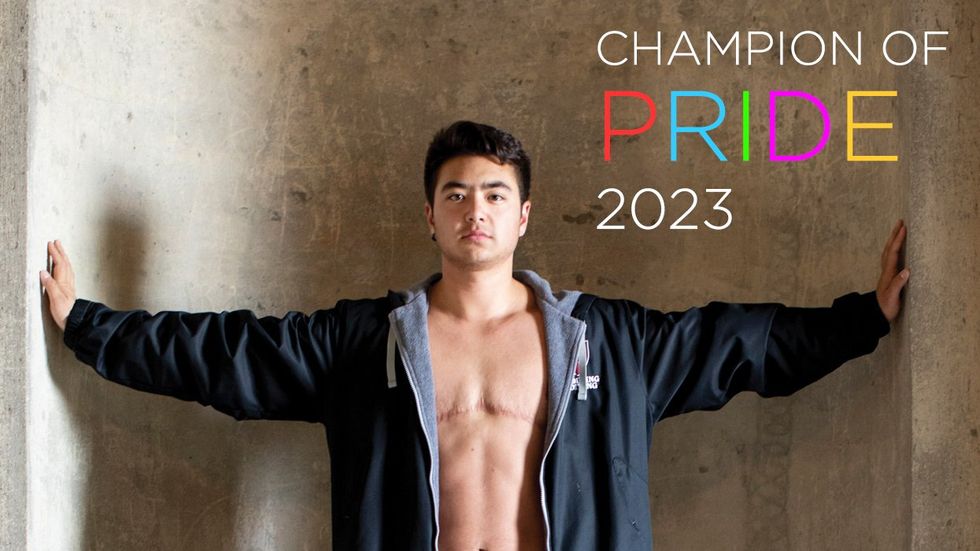Champions of Pride 2023: It’s our annual celebration of some of the fierce, fearless change-makers and creatives who continue to make the world a better place for LGBTQ+ people — and this year, we’re focusing on the beautiful diversity of our community.
“I’ve been a swimmer for as long as I can remember,” Schuyler Bailar says. “I learned how to swim when I was 10 months old… and swimming’s just been such an important part of my life since before I could really remember.”
From there Bailar went on to become a decorated competitive swimmer, and eventually became the first openly transgender NCAA Division I swimmer. He is also the first documented NCAA Division 1 trans man to compete as male in any sport. But he admits the road to his success was rocky.
“I went through a lot of difficult things in my 18 years before I realized that I was transgender,” he says. “I was bullied a lot for not looking girly enough. I was always kind of different from everybody else, even if it wasn’t about gender.”
Bailar explains that, in addition to surviving bullying and social struggles, he also experienced some physical setbacks throughout his young life, including foot surgeries to correct a defect and breaking his back at 16 in a biking accident. “But all through it,” he says, “I continued swimming and swimming [even when] I thought was going to lose everything.”
Once returning to the pool — only three months after breaking his back — Bailar says, “I swam faster than I’d ever swam before…. These were all ways I learned to overcome perceived barriers.”
So when he realized he was transgender, “that was probably the most frightening out of all the other barriers that I’d gone through…. My being transgender was a thing I was really like, ‘I might actually have to stop swimming. This might be it.’”
But obviously, it wasn’t. He went on to make history as a trans male swimmer and has become a prominent advocate and activist for the transgender community and other marginalized groups. He says it was simply his very existence that led him to this.
Bailar says while in college, “I was not an advocate. People would call me an advocate; they’d call me an activist. And I said, ‘No, you’re only calling me that because I happened to be transgender and a swimmer, and I’m telling you about it.’”
However, these days Bailar has embraced his role as an educator and role model, utilizing social media (@pinkmantaray) to spread his message. He believes that, ultimately, all marginalized peoples are victims of the same oppressive, white patriarchal system — which is why uniting communities to fight the power is important to him.
“When the Dobbs decision was released and Roe v. Wade was overturned and there was no more federal protection for abortion rights, there was a tweet that was like, ‘They’ve overturned Roe, they won’t stop here,’” he recalls.
“And somebody else retweeted that and responded, ‘And they didn’t begin here either. They started with the attack on trans bodies. You just didn’t see that as a valid and frightening attack on bodily autonomy.’ And this is really important because they didn’t start with trans rights either, they started with Black bodies. And that’s what I think is really important — none of this is happening in a vacuum.”


















































































Fans thirsting over Chris Colfer's sexy new muscles for Coachella